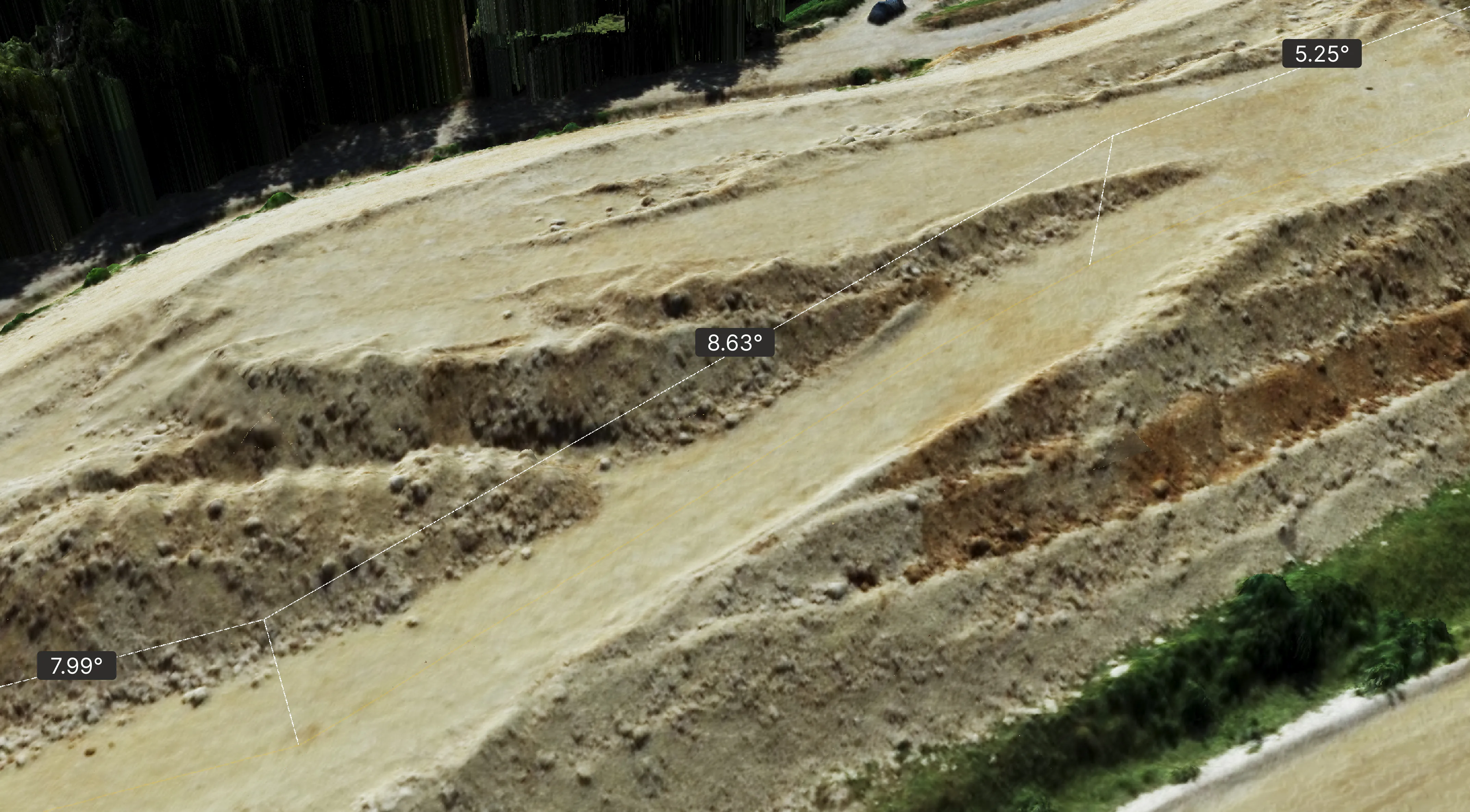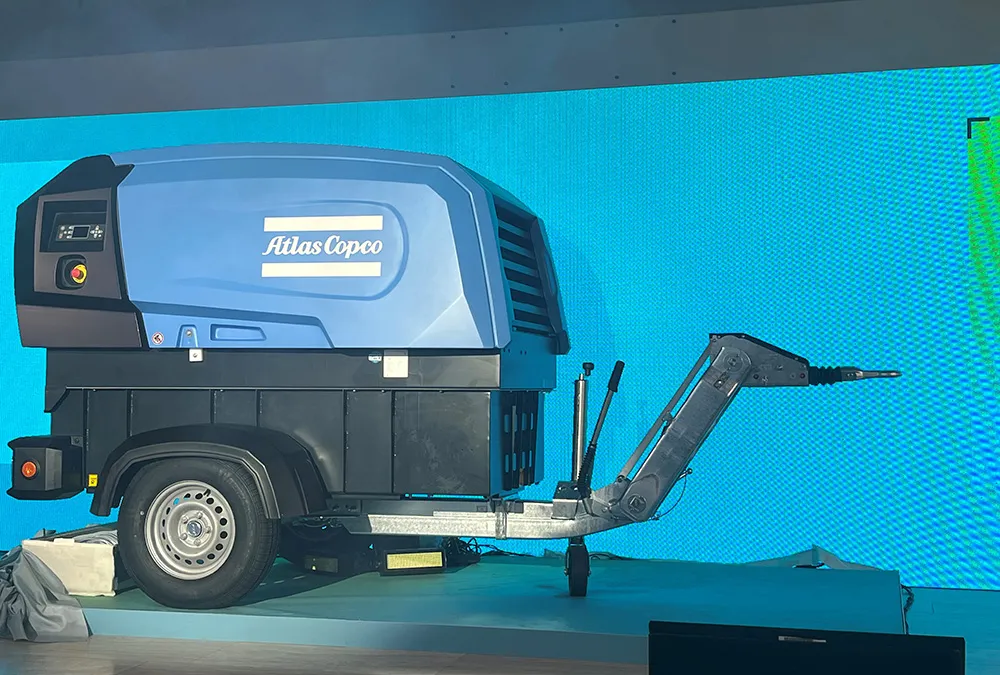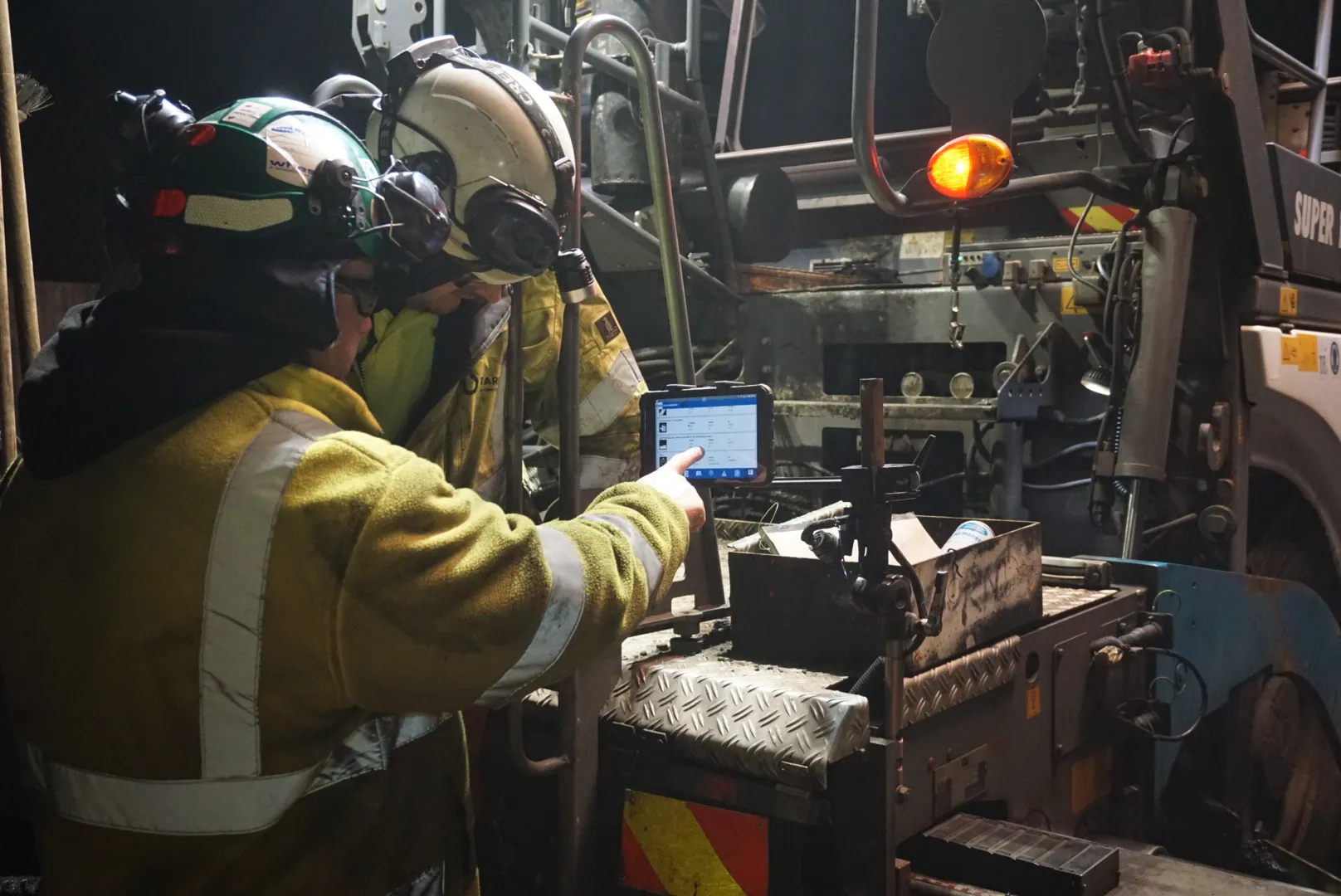
Following a global survey that revealed 70% of construction projects now incorporate sustainability targets, it’s clear that the construction industry is committed to reducing global carbon emissions.
Invest in technology to improve efficiency
As the construction industry continues to try to alleviate pressures on budgets, timing, and safety, the sector is becoming more technologically advanced through the uptake of tools that will support these shared challenges.
A breadth of technology is now readily available and the development of solutions, such as sensors, remote monitoring and intelligent machine control and guidance, continues to rise.
Manufacturers are utilising hardware and software to aid contractors and site managers more and more in a bid to fall in line with environmental, social, and governance (ESG) obligations. By enhancing existing tools with additional features aimed at addressing a range of concerns, the industry is fostering a more sustainable approach.
Bart highlights the importance of this shift: “Embracing innovative technology in construction not only saves time and fuel by enabling virtual monitoring and support but also contributes significantly to reducing CO2 emissions. By leveraging digital solutions, we can make a tangible impact on the environment while driving efficiency in and streamlining construction operations.
“Alongside selecting alternative fuels and the correct machine for the job - software and the adoption of technology is a game changer in unlocking the sustainable targets of a construction project. By using tools that continuously monitor the construction site, efficiency, challenges and problems can be picked up before they create disruption.
Remote is an application that provides construction professionals with the ability to send design data to the machine in the field and remotely support operators by taking control of the in-cabin screen, without the need to travel to the jobsite - resulting in significantly reducing fuel consumption and increasing productivity.
As a direct result of using Remote, the HS2 project contractor saved 81 working hours and 483litres of fuel by minimising on-site travel and addressing idle time. Bart adds: “Site managers can analyse their fleet by utilising technology on site, allowing them in real time to connect remotely, sending new design files to machines immediately after the latest changes have been made, even when the machine is offline.”
Effectively managing the job site by creating a digital twin
Haul routes are a common pitfall for sustainability goals within construction projects. On-road haulage suffers from traffic jams caused by accidents or rush hour, while on-site haul roads can be too steep or experience erosion over time, causing the rolling resistance to be sub-optimal. This results in excessive petrol consumption and higher emissions, which over time leads to more frequent maintenance - all costly consequences.
When construction companies begin a project, it is crucial to adhere to the planned schedule, as delays are the antidote to a greener construction. One effective strategy is to use a continuously updating digital twin to monitor earth-moving activities and equipment productivity. This technology provides a remote overview, helping to identify site bottlenecks and assess the health of haul routes. By proactively addressing issues, this approach minimizes rework, reduces delays, and ultimately lowers fuel consumption.
Bart explains: “One way to monitor the health of a job site and haul road is to create a digital twin that receives daily updates from equipment on-site, supplemented by monthly drone surveys.”
Mitigating risks remotely for a sustainable future
Mitigating risks before they arise through the use of remote platforms should be a top priority for companies seeking a sustainable approach in the industry.
Bart concludes: “Carbon emissions from operational activities are projected to account for half of the total global emissions from the built environment by 2035. Therefore, it is crucial for the sector to invest in the latest technologies to mitigate sustainability risks and challenges before they occur.
“The ‘PDCA’ framework (plan, do, check, act) works well and allows sustainable practices to be continuously updated and improved. The construction industry is one of the biggest contributors to carbon emissions, and there is a growing recognition that we need to tackle this problem urgently.
“New technologies and AI advancements can optimise construction sites, reducing the required time on site, the amount of rework and limiting the use of petrol.”
Bart notes that the adoption of technology is increasing across the construction sector, with new data from Komatsu Smart Construction indicating an European-wide increase of digital tools, highlighting a behaviour shift across the industry.









